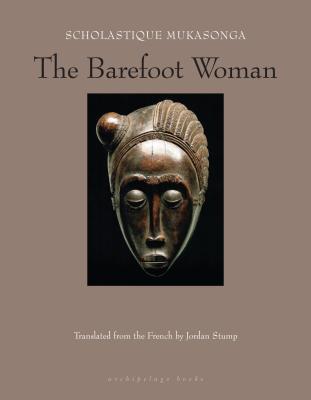 And, indeed, it didn't, in exactly the way I expected. The Barefoot Woman is far from a bad book or mediocre memoir; on the contrary, it's quite good. Slim, concise, and achingly real, The Barefoot Woman recounts Mukasonga's memories of her mother Stefania and her childhood home. Through her mother, Mukasonga describes details of Rwandan - Tutsi - life. There's a cultural reckoning here, alongside deeply personal and traumatic memories. It's hard not to recognize The Barefoot Woman as that combination of powerful and beautiful.
And, indeed, it didn't, in exactly the way I expected. The Barefoot Woman is far from a bad book or mediocre memoir; on the contrary, it's quite good. Slim, concise, and achingly real, The Barefoot Woman recounts Mukasonga's memories of her mother Stefania and her childhood home. Through her mother, Mukasonga describes details of Rwandan - Tutsi - life. There's a cultural reckoning here, alongside deeply personal and traumatic memories. It's hard not to recognize The Barefoot Woman as that combination of powerful and beautiful.It's important to come into the memoir knowing that The Barefoot Woman is not seeking to replicate Cockroaches. While touching on similar themes and addressing Mukasonga's own past, The Barefoot Woman feels like it's much less about the Tutsi genocide than it is about the Tutsi. Often, it is more specifically about Mukasonga's mother - focused, directed, and intimate. It's neither a sequel nor a prequel to Cockroaches; at best, this could be called a companion piece, but truthfully it felt like it deserves its own space. It's a very different sort of book, at once more mainstream in its humanity and yet unique in its internal conflicts. I can't say that this had the same effect on me as Cockroaches, but it remains a very good memoir, well worth reading.

No comments:
Post a Comment
Anonymous comments have been disabled due to an increase in spam. Sorry!